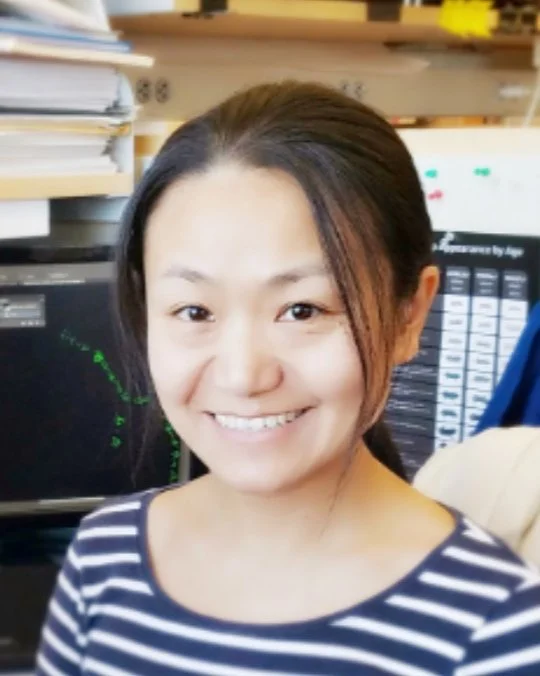studies how neurovascular coupling develops during the neonatal period using several live imaging approaches.
Dr. Farzaneh Najafi
studies cortical and cerebellar mechanisms underlying predictive processing using electrophysiological and optical methods in awake behaving mice.
Dr. Liberty Hamilton
studies how speech sounds are represented in the brain using intracranial recordings from epilepsy patients and scalp EEG.
Special Feature: 100th Episode
This week, the Stories of Women in Neuroscience team is celebrating the release of our 100th episode. In honor of this, some of the founding members of the podcast - Dr. Nancy Padilla-Coreano, Dr. Catie Profaci, Dr. Megan Kirchgessner, and Daniela Cassataro - recorded a special episode delving into the origins of the podcast and reflecting on what they’ve learned from Episode 1 to now. Join us as we explore ‘the story behind the Stories’, and consider some of the invaluable insights our wonderful interviewees have shared about what it means to be a woman in neuroscience today.
Dr. Bing Brunton
studies how the brain gives rise to natural behaviors using computational tools
Dr. Jennifer Bizley
studies how neuronal activity in the auditory cortex shapes our perception of the outside world
Dr. Tingting Wang
studies how glial cells regulate homeostatic plasticity, and uses transcriptomic and electrophysiological techniques to study how their functions change in disease states.
Dr. Ana Marija Jakšić
studies natural genetic and adaptive variation of cognition and related neuronal traits.
Dr. Chunyu Ann Duan
studies how animals make flexible decisions under risk and social influence, and the neural circuit mechanisms underlying these choices.
Dr. Helen Schwerdt
develops and applies new tools to study neurochemical signaling in learning and disease.
Dr. Marta Garrido
studies how the brain makes predictions and adapts to novel or uncertain environments, and how these mechanism are altered by mental illness
Dr. Malavika Murugan
studies social recognition and social decision making, and how social and non-social rewards are differentially encoded in the brain.
Dr. Ilary Allodi
studies the inhibitory/excitatory changes of the neuronal circuits involved in the pathophysiology of Amyotrophic Lateral Sclerosis and Frontotemporal Dementia
Dr. Cláudia Almeida
Dr. Cláudia Almeida studies how neuronal trafficking dysfunction underlies synapse loss during aging and Alzheimer's disease.
Dr. Christie Fowler
studies the underlying neurobiology of motivated behaviors related to addiction and neuropsychiatric disorders
Dr. Lakiesha Williams
Dr. Williams uses engineering principles to understand mechanistic changes in the brain resulting from repetitive head impacts.
Dr. Meg Fox
studies the neural mechanisms of substance abuse and stress disorders
Dr. Claire Wyart
studies how internal and external sensory cues are integrated to shape movements and posture during active locomotion, using zebrafish as a model.
Dr. Janine Kwapis
studies the epigenetic and molecular basis of long-term memory, particularly how these mechanisms are altered in the aging brain and how epigenetic regulation of circadian genes might contribute to age-related memory decline.
Dr. Andrea Gomez
studies the role of RNA splicing in synaptic plasticity



















